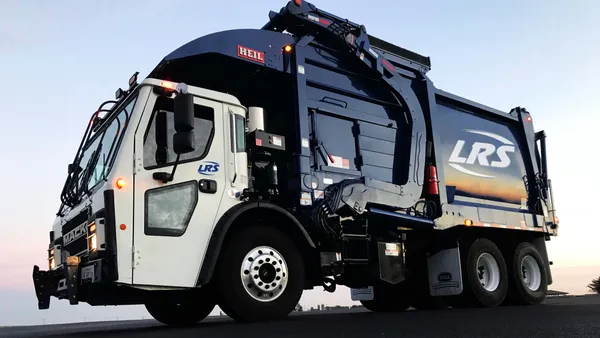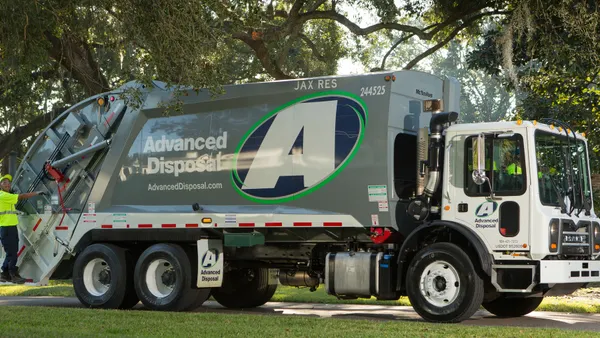Dive Brief:
- Columbia, MO residents will have a chance to vote for or against Proposition 1, which calls for a ban on roll carts for trash collection, on the March 15 presidential primary ballot. Proponents of the carts say they are safer than the alternative of just collecting bags, and that they would reduce trash collectors’ workers' compensation claims, which cost $1.46 million for 283 injuries over the past 10 years. A former Second Ward Councilman Jason Thornhill said a roll cart system could also save $475,000 a year after five years, not only in workers’ compensation, but by eliminating plastic bags.
- Opponents say the carts are no safer, and that switching to them would cost over $6.3 million because each household would need two carts — one for recycling and one for trash. Some also argued that the roll carts would be less safe for residents as they would have a harder time manipulating them than to simply hauling bags. Committee for Roll Cart Choice Chairman Michael Trapp suggested giving residents a choice between roll carts or trash bags to mitigate risk for injury.
- Further, if Columbia implemented roll carts, trash collectors could be transferred to the MRF to help sort recyclables, according to officials, as reported in the Missourian. The city’s MRF received $676,230 in compensation claims for 102 injuries over the past 10 years.
Dive Insight:
Deciding whether or not to switch to roll carts has been a hot topic in Columbia for some time.
The argument continues to be correlated to worker safety and dollars spent on workers' compensation. Opponents say rather than focus on increased pickup speed with roll carts, the focus should be on safety practices to prevent tragedies such as one that occurred in 2003 when a garbage hauler was hit and killed by a trash truck after falling off of it. Additionally, just a few years ago an employee was nearly killed during an incident when he was guiding a truck that was backing up — a safety issue that has garnered attention on a large scale, along with suggestions for safety practices.
Employees at the MRF, where there are less injuries, go through safety training and wear safety glasses and steel-toed shoes. The addition of roll carts would have no impact on injuries there, said Nicholas Paul, the facility’s superintendent.
Meanwhile, the Public Works Department has begun a new plan to cut injuries in trash collections: workers who sustain no preventable injuries over three months get an hour off at the end of their shift if they have finished their routes.
Trapp said the city can control the working environment with the cart system as they would further reduce the opportunities for injury.










